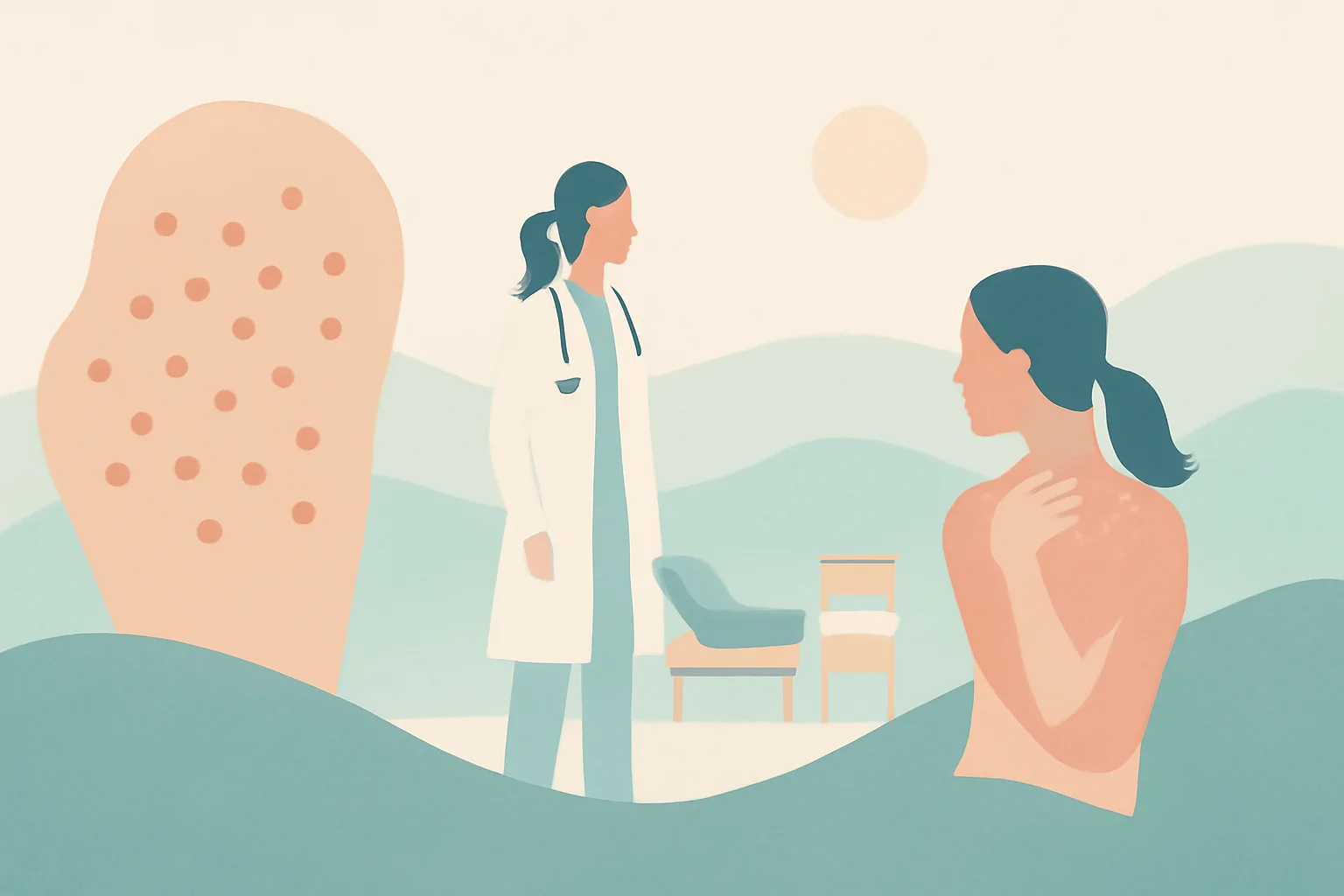
Rash or Itching: Causes and Effective Solutions for Symptoms
The skin is one of our largest organs, constantly exposed to environmental influences, so it’s no surprise that various skin problems can arise. Rashes and itching are common complaints that affect many people. These phenomena can occur for different reasons, and while they are harmless in many cases, it is still important to know when to seek medical attention. Rashes can be signs of allergic reactions, skin infections, or even autoimmune diseases, while itching can be caused by several other factors, such as dry skin or irritation.
Causes of Rashes on the Skin
Skin rashes can develop for numerous reasons, and their appearance is often linked to various skin diseases, allergic reactions, or irritation. One of the most common causes is an allergic reaction, which is typically triggered by certain foods, medications, insect bites, or substances that come into contact with the skin. These rashes often come with itching, and the skin may appear red or swollen.
Skin infections are also common triggers for rashes. Infections caused by bacteria, viruses, or fungi can lead to skin rashes, and these can often be painful or uncomfortable. Shingles, for example, is a viral infection that causes characteristic rashes in the affected area.
Dermatitis, such as eczema or psoriasis, can also cause rashes. These diseases can be chronic and require regular skin care. Eczema often develops due to skin irritation and inflammation, while psoriasis results from the excessive proliferation of skin cells, leading to the appearance of red, scaly patches.
In addition, stress can contribute to skin problems. Stress triggers the release of hormones in the body that can cause inflammation, worsening the condition of the skin. Thus, rashes can arise from both physical and psychological causes, making a holistic approach essential in their treatment.
Causes and Treatment Options for Itching
Itching is an extremely unpleasant sensation that is often associated with skin problems. There can be many causes, and the triggering factors encompass a wide spectrum. One of the most common causes is dry skin, which particularly occurs in winter, in heated indoor environments. To maintain skin hydration, proper body care is essential, as the use of moisturizers can help prevent itching.
Allergic reactions are also common triggers for itching. Allergens, such as pollen, dust mites, or chemicals, can irritate the skin and cause itching. Treatment for allergic itching typically involves antihistamines, but it is also important to avoid the source of the allergen.
Skin diseases, such as eczema, psoriasis, or hives, can also lead to itching. These conditions usually require medical treatment, and therapies recommended by a dermatologist can help alleviate the symptoms.
Additionally, there are psychological causes for itching. Stress and anxiety often manifest in physical symptoms, including itching. In such cases, psychological support, relaxation techniques, and stress management methods can effectively help address the issue.
Co-occurrence of Rashes and Itching
Rashes and itching often occur together, and in many cases, the rash develops as a result of the itching. Scratching the skin due to itching can irritate the surface, leading to the appearance of rashes. In such cases, treating the itching is crucial for preventing rashes.
The simultaneous occurrence of rashes and itching often indicates an allergic reaction, such as in the case of insect bites or food allergies. In these situations, along with avoiding the allergen, the use of antihistamines is also recommended to alleviate symptoms.
Skin infections can also cause rashes and itching, such as in cases of fungal or bacterial infections. These infections often require medical treatment, including topical or oral medications that can help reduce inflammation and itching.
Chronic skin diseases, such as eczema and psoriasis, can also cause rashes and itching. These conditions are often closely related, and their treatment typically requires a long-term approach that includes proper skin care and medical supervision.
Understanding the causes of rashes and itching is essential for selecting appropriate treatment. To establish a proper diagnosis, it is important to consult a specialist who can help identify the underlying causes and determine the appropriate therapy.
**Warning:** This article does not constitute medical advice. In case of health problems, everyone should seek the advice of a doctor.

